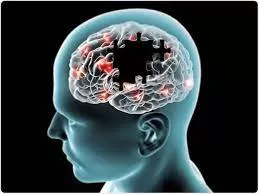
As winter’s chill settles in, medical experts have sounded an alarm regarding the heightened risk of brain stroke and haemorrhage, particularly among individuals with hypertension, emphasizing the concerning nexus between plummeting temperatures and potential health complications.
In the wake of a further drop in Delhi’s minimum temperature to 5 degrees Celsius, medical professionals cautioned that the cold weather exacerbates the susceptibility to brain haemorrhage, especially among hypertensive individuals.
Dr. Manish Vaish, Senior Director of Neurosurgery at Max Super Speciality Hospital, Delhi, referenced pivotal studies published in renowned medical journals that highlight the worrisome correlation between cold weather and increased vulnerability to brain haemorrhage, affecting individuals with both high and normal blood pressure.
One compelling case-crossover analysis, featured in ScienceDirect, underscored the heightened risk of haemorrhagic stroke posed by cold temperatures compared to snowfall, shedding light on the potential trigger effect of cold weather on this critical health event.
“Cold weather seems to serve as a catalyst, particularly for those with hypertension, elevating the risk of brain haemorrhage. This correlation demands proactive preventive measures, especially for those with existing health conditions,” emphasized Dr. Vaish.
Dr. Yashpal Singh Bundela, Senior Consultant at Sushrut Brain and Spine, New Delhi, emphasized the increased risk of high blood pressure in colder temperatures, amplifying the risk of cerebral haemorrhage even in individuals with normal blood pressure. This underscores the urgency for timely interventions during colder seasons.
The experts stressed the importance of managing blood pressure levels and adopting protective measures against extreme cold to mitigate the potential risks associated with brain haemorrhage during the winter months.
“Public awareness and proactive health measures are imperative. Individuals, especially those with hypertension or cardiovascular risks, are urged to undertake preventive steps, including regular health check-ups, maintaining optimal blood pressure levels, and staying warm in colder temperatures,” highlighted Dr. Bundela.
Recognizing the urgency in addressing brain haemorrhage, the doctors emphasized swift action, advising immediate transportation to the nearest emergency department in the event of suspected symptoms. Warning signs may include severe headaches, weakness or numbness, speech difficulties, vision disturbances, dizziness, nausea, seizures, altered mental state, or loss of consciousness.
Dr. Vaish underscored the critical nature of time in managing brain haemorrhage, stressing swift and coordinated medical intervention focused on stabilizing vital signs, ensuring proper oxygenation, and controlling blood pressure to prevent complications.










